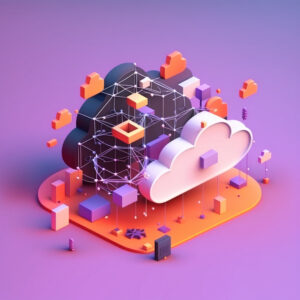Transformative Technologies: Exploring the Impact of AI, IoT, and Blockchain in Digital Innovation
Businesses are continuously looking for new ways to innovate and gain a competitive edge in today’s fast-paced digital environment. The development of technology has enabled companies to broaden their perspectives and reach, which has increased their market share. The Internet of Things (IoT), Blockchain, and artificial intelligence (AI) are three technologies that have gained attention recently. The way we live, and work is changing as a result of these transformational technologies, which are also having a big influence on digital innovation.

The Role of Artificial Intelligence (AI) in Digital Innovation
Artificial intelligence is one of the most innovative technologies of our time. It has the ability to streamline processes, enhance judgment, and develop fresh business ideas. Intelligent chatbots, virtual assistants, and targeted marketing initiatives are all being created with AI. Businesses may get deeper understanding of consumer behavior and preferences with the use of AI-powered analytics, which can then be used to create more specialized and successful marketing campaigns.
Healthcare is another sector where AI is being utilized to enhance patient outcomes and cut expenses. AI-powered medical equipment can track a patient’s vitals and notify staff members if anything is out of the ordinary. This might potentially save lives and raise the standard of treatment given.
The Internet of Things (IoT) and its Impact on Digital Innovation
Another disruptive technology that is altering how we live, and work is the Internet of Things (IoT). The Internet of Things (IoT) is the collective name for a network of physical objects, including machinery, transportation, household appliances, and other things. The ability of these technologies to communicate with people and with one another makes the world more connected and effective.
IoT is being utilized to construct smart cities, enhance healthcare results, and optimize supply chains. Businesses may utilize IoT to collect real-time data about their operations and use that data to influence smarter decisions. For instance, businesses may improve their supply chains and cut waste by using IoT sensors to track inventory levels in real-time.
Because technology makes it possible to remotely monitor patients, IoT is also revolutionizing the healthcare sector. IoT-powered medical devices may track patients’ vital signs and transmit that information to medical staff in real-time, enabling early action in the event of any anomalies. This may lead to better patient outcomes and lower medical expenses. Because technology makes it possible to remotely monitor patients, IoT is also revolutionizing the healthcare sector. IoT-powered medical devices may track patients’ vital signs and transmit that information to medical staff in real-time, enabling early action in the event of any anomalies. This may lead to better patient outcomes and lower medical expenses.
Blockchain and its Potential in Digital Innovation
Blockchain is a revolutionary technology that has the power to upend whole industries and establish brand-new business practices. Blockchain is a decentralized ledger that securely and openly logs transactions. It might revolutionize sectors including banking, healthcare, and supply chain management.
Businesses may use blockchain to build more effective and secure systems for recording transactions and managing data. Decentralized marketplaces and peer-to-peer lending systems are only two examples of innovative business models that may be developed using blockchain technology. Voting systems that are transparent and safe thanks to blockchain can lower voter fraud and boost voter turnout.
Conclusion
Blockchain is a revolutionary technology that has the power to upend whole industries and establish brand-new business practices. Blockchain is a decentralized ledger that securely and openly logs transactions. It might revolutionize sectors including banking, healthcare, and supply chain management.
Businesses may use blockchain to build more effective and secure systems for recording transactions and managing data. Decentralized marketplaces and peer-to-peer lending systems are only two examples of innovative business models that may be developed using blockchain technology. Voting systems that are transparent and safe thanks to blockchain can lower voter fraud and boost voter turnout.